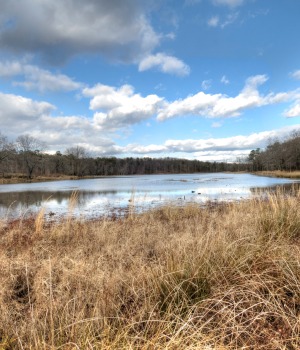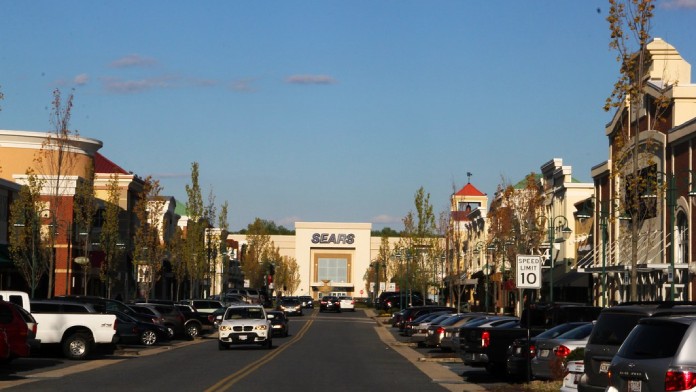Alcohol and Drug Use Statistics in Bowie, Maryland
Drug and alcohol addiction causes a range of issues in Bowie, which we can get a clearer view of by looking at some recent statistics:1,3,4
Opiate medications were prescribed at a rate of 24.8 per 100 residents in the county in 2020, while only 9.3 prescriptions were written per 100 residents in 2019
While men overdosed 148% more often than women in 2018, the rate rose to a difference of 236% in 2020, with men dying at a rate of 40.1 per 100,000 and women at a rate of 11 per 100,000 residents
Levels of Care for Rehabs in Illinois
Several levels of addiction treatment are available to meet various care and recovery needs.
Detox
Residential or inpatient treatment involves 24/7 care. It’s the most intensive treatment setting, offering constant supervision. In this setting, you will typically participate in individual, group, and family therapy sessions, and you may receive medication and additional recreational and holistic therapies.
Residential or Inpatient
Residential or inpatient treatment is the most intensive treatment setting, involving 24/7 care. Medication, individual and family therapy, and recreational therapy are common forms of treatment at this level.
Partial Hospitalization Programs (PHPs)
PHPs often involve some of the same treatment methods used in inpatient care. The difference is, you only stay at the facility during treatment times, then return home.
Intensive Outpatient Programs (IOPs)
IOPs provide several hours of treatment over several days per week. Treatments often include individual and group therapy. This type of program is a step down from partial hospitalization, and many people transition to IOPs after completing a residential or PHP program.
Standard Outpatient
Standard outpatient programs are often appropriate for individuals who have mild additions and strong support systems. This level of care requires a couple hours of care per week, typically with a therapist in their office or at an outpatient clinic.
Aftercare
Once inpatient or outpatient treatment is completed, aftercare provides ongoing support, such as 12-step meetings, transitional housing, or therapy. It is an important component of relapse prevention.
How to Pay for Addiction Treatment in Bowie, Maryland
Private Insurance
All insurance companies must provide at least some coverage for substance abuse treatment, per the Mental Health Parity and Addiction Equity Act. Each plan differs, so contact your provider to find out exactly what yours covers.
Medicaid
Maryland Medicaid is a government-funded insurance program that provides health insurance for low-income individuals and families. Medicaid offers coverage for various forms of drug and alcohol addiction treatment. To be eligible, you must live in Maryland, be a U.S. citizen or meet immigration status requirements, and earn less than 138% of the federal poverty level. You must apply for Medicaid coverage in Maryland, and the treatment program must accept Medicaid as a method of payment.
Medicare
Medicare is a federally funded health insurance program that provides coverage for Americans aged 65 and older, as well as individuals with certain disabilities. Some forms of addiction treatment are covered under Medicare Part A, and others are covered under Part B. Not all rehab facilities accept Medicare, so it’s important to confirm accepted methods of payment before starting a program.
TRICARE in Maryland
TRICARE in Maryland (North region) provides health insurance coverage for military personnel, veterans, and their families. This includes addiction treatment services; however, various plans differ in their coverage.
IHS-Funded Drug Rehabs
The Indian Health Service (HIS) is a federally funded health program for indigenous people. Native Americans and Native Alaskans who need SUD treatment can receive low-cost or free services, even if they have other insurance coverage.

Traveling to and Within Bowie, Maryland
Once a small railroad stop, Bowie is now the third-largest city in the area and the largest city in the municipality. Residents here find a wide range of activities to enjoy and all the amenities you would usually find in a small town:
- If you’re planning to fly into the area, your nearest airport will be the BWI Baltimore International Airport, a 17-minute drive away. The local Metrorail and Metrobus provide convenient public transportation through Bowie and the greater D.C.-Baltimore metro area.
- Home of the Bowie Race Track, which was a racing track until 1985, this city is a prime location for horse lovers, with its stable and training facilities.
- Bowie, being a suburb in the eastern Washington, D.C. area, is nearby twenty different historic sites and monuments. Favorites include the Bel Air Mansion, the Taoping Castle, and the Hidden Chesapeake Beach and Underground Railroad.
- Bowie State University is an esteemed college just north of the city, with noted alumni including astronaut Christa McAuliffe and singer Toni Braxton.
- If you want to road trip to a fun destination, the Maryland Zoo in Baltimore is a 45-minute drive, or you can go to the Smithsonian National Zoo in Washington, D.C.
- There are 25 K-8 primary schools in the Bowie school district, and a range of amenities for families including three public libraries, 19 parks and playgrounds including the Medieval Dragon Playground, and free state-sponsored after-school activities for teens in the county.
Maryland Drug and Alcohol Laws
Maryland policy makers have established the following laws regarding substances:1,2,3,4,5
Protection Against Discrimination: Article 49B provides protection against discrimination for Maryland residents who are participating in or have completed a substance use disorder treatment program and are no longer using drugs illegally.
Marijuana Laws: On November 8, 2022, Maryland officially voted to legalize recreational marijuana use. Listed as Question 4 on the ballot, voters overwhelmingly supported the amendment allowing residents to possess, use, and grow marijuana under the regulation and supervision of the Maryland General Assembly. Starting on July 1, 2023, the ballot initiative will legalize personal possession of up to 1.5 ounces of marijuana and the cultivation of up to two plants for personal use in Maryland
Low-Level Drug Possession: Maryland officials do not prosecute for possession of small amounts of illicit drugs/drug paraphernalia. Effective March 2020, this policy was enacted to reduce the number of people jailed for minor offenses.
The Good Samaritan Law Maryland’s Good Samaritan Law protects those who seek or receive emergency medical assistance during a suspected overdose. The law does not cover drug felonies or witnesses who fail to help during the medical emergency. The Good Samaritan law is meant to save lives by removing the fear of arrest or prosecution for:
- Possession or use of a controlled dangerous substance
- Possession or use of drug paraphernalia
- Providing alcohol to minors
Alcohol and Drug Courts: Maryland drug courts allow offenders to enter treatment for SUDs as an alternative to legal punishment.
Resources
- Center for Disease Control. (2022). CDC Wonder Tool.
- Substance Abuse and Mental Health Services Administration. (2022). Treatment Locator Map.
- Center for Disease Control. (2022). U.S. County Opioid Dispensing Rates, 2020.
- Prince George’s County Health Department. (accessed 2022). 2016 Prince George’s County Community Health Needs Assessment.


